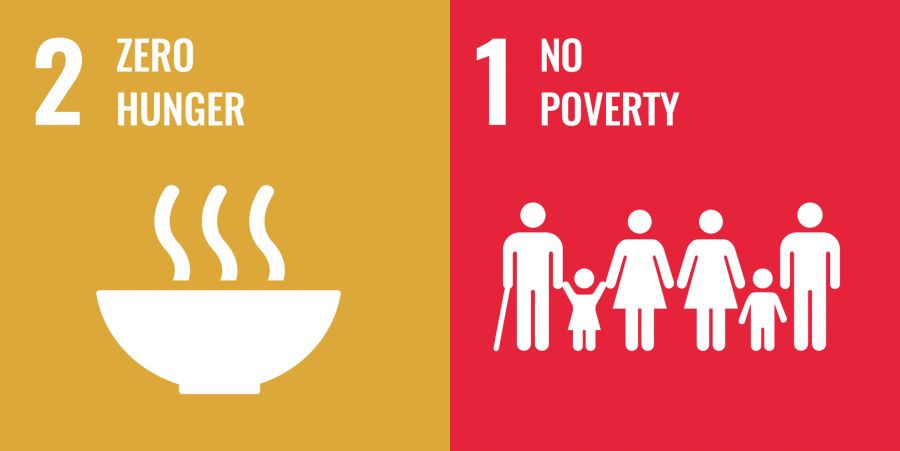
The 2030 Agenda for Sustainable Development is a blueprint to achieve a better and more sustainable future for everyone. At the core of this agenda are the 17 Sustainable Development Goals (SDGs), which are an urgent call for action by all countries in a global partnership. While the SDGs are all interconnected, SDG 5, Gender Equality, is of particular importance because it is connected to each goal and essential to all dimensions of sustainable development.
Here is how gender equality is connected to the rest of the SDGs:
While both men and women suffer in poverty, gender discrimination means that women have far fewer resources to cope. They are likely to be the last to eat, least likely to have access to healthcare or educational opportunities and are more likely to report food insecurity. Women are cornerstones of food production, family health, and community well-being. In order for SDG 1 and SDG 2 to be fully realized women need to have equitable access to economic resources, land ownership, and credit.
Gender discrimination systematically undermines women and girls’ ability to access health care, receive a quality education, and access to clean water and sanitation. This limits their ability to stay healthy and provide for their families. Addressing how gender equality connects to good health and wellbeing, quality education and access to clean water and sanitation will reduce the likelihood that women and girls will marry young, increase the likelihood that they will receive a full education and improve their prospects for employment which will increase their good health and well-being overall.
Unequal distribution of work between and women perpetuate a gendered economy in which women’s unpaid work is undervalued and underpaid. It also creates male-dominated industries, particularly in research, construction, manufacturing, and energy. This is an issue because these sectors drive the economy, shift progress and create sustainable cities. The experiences of women need to be included in these spaces and be equally considered as decision-makers.
Women and girls are disproportionately affected by climate change because they are most reliant on natural resources for their livelihoods and have the least capacity to respond to natural hazards. Using a gendered lens to understand climate change and responsible consumption and production will help reduce future economic, environmental and social costs, strengthen economic competitiveness and reduce poverty for women and girls around the world.
Women face greater risks associated with the degradation of our oceans and land because they have fewer assets, less alternatives to make up for lost income, and are more reliant on these resources for fuel, fodder and food. Women also make up a larger portion of low-skilled, low-paid secondary jobs in these areas – which means they are the first to lose their livelihoods in a crisis. Sustainable management of our lands and oceans will protect against significant global climate shifts and protect livelihoods.
A successful sustainable development agenda requires partnerships between all levels of governments, the private sector and civil society. These partnerships need to be inclusive and built on a shared vision and goals that centre the voices, experiences and expertise of women and girls from around the world. This can help build accountable institutions, so that sustainable development can happen in a peaceful, inclusive and equal world.
Gender equality plays a crucial role in achieving the SDGs by 2030. Gender equality is integral to all dimensions of development as it affects the lives of women and girls everywhere. Stepping up action on gender equality in every part of the world can make progress towards achieving the sustainable development goals by 2030 while making sure that no one is left behind!
Let us know why you think gender equality is an important part of achieving the SDGs by using the hashtag #GoForTheGoals.